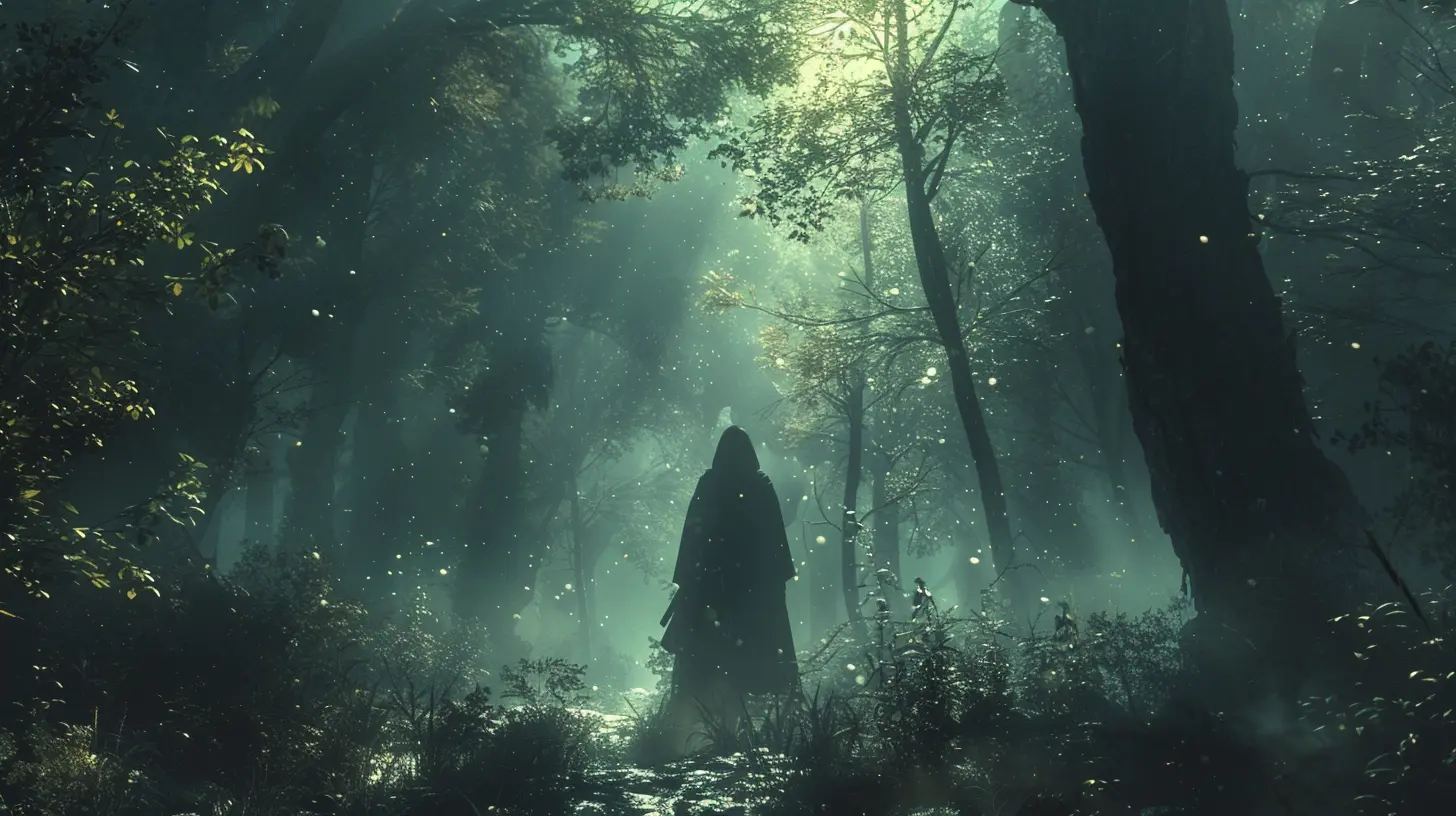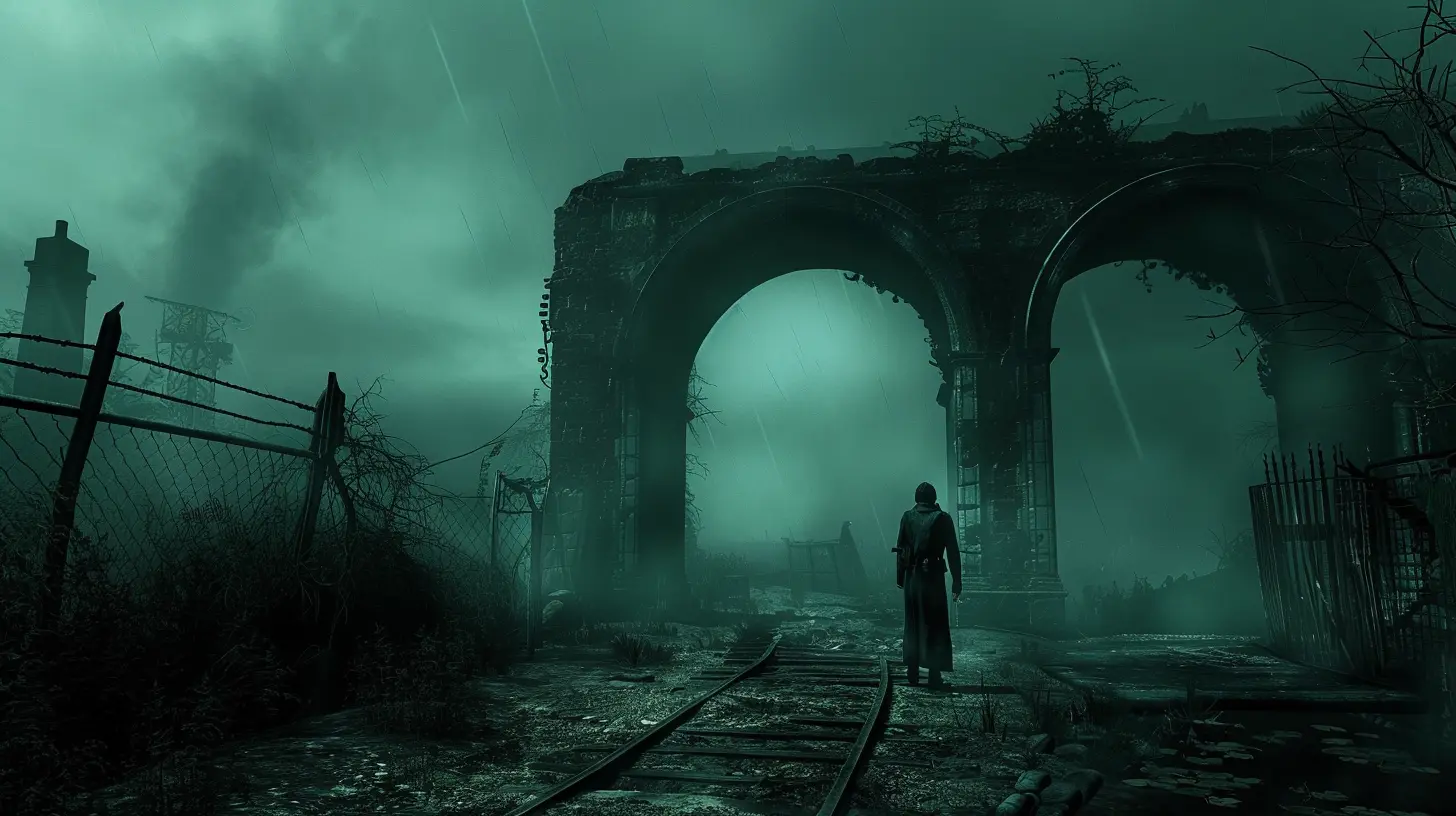Exploring Morally Ambiguous Stories in Choice-Based Games
25 September 2025
Games are more than just entertainment—they're experiences, storytelling vehicles, and sometimes, moral playgrounds. Choice-based games have a knack for putting our decision-making skills to the test, but there's a special place in our hearts for the ones that tackle morally ambiguous stories. These games don't hand us clear-cut answers or easy paths to righteousness. Instead, they lead us down a winding road full of gray areas, forcing us to question our ethics, values, and sometimes even our humanity.
So, buckle up, gamers! Let’s dive into what makes morally ambiguous stories in choice-based games so captivating, and why they leave such a lasting mark on us.
What Makes Morally Ambiguous Stories So Intriguing?
Have you ever played a game and thought, "Did I just do the right thing?" only to follow it up with, "Wait, what is the right thing?" That’s the beauty of morally ambiguous storytelling. It's like peeling an onion—just when you think you've figured it all out, another layer of complexity smacks you in the face.At their core, morally ambiguous stories force us to face ethical dilemmas. They don’t present us with a shining hero versus a dark villain. Instead, they blur the lines between right and wrong, making us squirm and second-guess ourselves. And isn’t that what life is like? Rarely do we operate in absolutes. These games hit us where it hurts, making choices feel weighty, personal, and, frankly, unforgettable.
The Psychology Behind Difficult Choices
Why do we love putting ourselves through the emotional ringer with these games? Well, some psychologists believe it boils down to our innate desire to wrestle with our own moral compass. When presented with gray morals, we subconsciously explore our real-world values. It's like a free therapy session where the therapist is a pixelated NPC asking if you'll save the village elder...or leave them to fend for themselves because you're low on health potions.On top of that, choice-based games give us a sense of agency. Even though the game’s narrative is pre-written, the decisions feel deeply personal. When the stakes are high, and the "right" choice isn't clear, it pulls us deeper into the story. Suddenly, we’re not just players—we’re participants.
Examples of Morally Ambiguous Choice-Based Games
Let’s be real here: not all choice-based games are created equal. Some nudge you toward clear "good" or "evil" paths, but the cream of the crop? They throw you into the deep end with no floaties. Don't worry; I've got a list of some of the best that perfectly embody morally ambiguous storytelling.1. The Witcher 3: Wild Hunt
Oh, Geralt of Rivia, you magnificent monster-slayer and moral headache-inducer. While "The Witcher 3" is lauded for its sprawling open world and breathtaking visuals, what really sets it apart is its narrative depth.Take the infamous "Bloody Baron" questline, for instance. Without dishing out too many spoilers, every choice you make in this storyline feels excruciating. Help the Baron reconnect with his family? Sounds noble, but there’s the minor detail of his abusive past. Leave him high and dry? That has devastating consequences as well. At the end of it all, you’re left wondering if there even was a "right" answer.
2. Detroit: Become Human
Artificial intelligence and moral ambiguity go hand in hand, and Detroit: Become Human doesn’t pull any punches. This game lets you play as three androids, each with their own unique struggles and perspectives.Do you fight for android rights in violent rebellion, or do you take a peaceful stand? And what happens when those peaceful methods only lead to more suffering? This game thrives on putting you in impossible scenarios, leaving you haunted by your choices long after you’ve set the controller down.
3. Life Is Strange
The heart of Life Is Strange lies in its powerful storytelling and gut-wrenching choices. Let's talk about the biggie: the ending decision. Without spoiling too much, it’s basically a trolley problem on steroids. Do you save the life of someone you love, or do you sacrifice them for the greater good of others?What’s brilliant about Life Is Strange is how it doesn’t judge you for your choices. The game lets you sit in the ambiguity, forcing you to own your decisions without offering moral validation.
4. Mass Effect Series
How could we talk about morally ambiguous storytelling without mentioning Commander Shepard and the gang? Sure, you can take the Paragon (good) or Renegade (bad) route, but even those paths are littered with tough calls.Do you save an endangered alien species, knowing it could have ramifications down the line? Do you sacrifice a few to save the many? The Mass Effect games don’t shy away from giving you choices where every outcome leaves a bitter taste in your mouth. And honestly? That’s what keeps the series so iconic.
Why We Crave the Gray
Let’s face it: life isn’t black and white, and we don’t want our games to be either. Morally ambiguous stories resonate with us because they mirror our messy, unpredictable world. They let us explore ethical questions in a safe environment, where the worst consequence is a save-file we can reload, not a life-altering mistake.There’s also something cathartic about living through these dilemmas in a game. It’s like holding up a mirror to ourselves. How do we react? Do we follow our gut, or do we overthink it? No matter the choices we make, they feel intensely personal—and that's the magic.
Lessons We Take Away from Morally Ambiguous Games
It’s not all doom, gloom, and tough decisions. These games leave us with some valuable takeaways:- Empathy: Understanding that people (or characters) are complex and multifaceted.
- Critical Thinking: Learning to weigh the pros and cons of tough decisions.
- Responsibility: Realizing that actions, even in a virtual world, have consequences.
And hey, if nothing else, they make for amazing conversation starters! Seriously, how many hours have you spent debating with friends over who made the "better" choice in The Walking Dead?
The Future of Morally Ambiguous Games
As gaming technology evolves, so does storytelling. Developers are finding new ways to create branching narratives that feel even more unique to our choices. The rise of AI could mean NPCs with dynamic responses, meaning your moral decisions might have an even greater ripple effect. Imagine a world where no two moral dilemmas play out the same way—exciting, right?With the growing appetite for deeper, more thought-provoking content, it’s safe to say morally ambiguous stories will continue to thrive in the gaming world. And honestly, we’re here for it.
Wrapping It All Up
Morally ambiguous stories in choice-based games do something extraordinary—they make us feel. They challenge us, frustrate us, and leave us questioning our own principles. They remind us that in life, as in gaming, there’s rarely a "perfect" choice.So, next time you find yourself staring at your screen, completely torn about what to do, take a deep breath and remember: the beauty is in the struggle. After all, isn’t that what gaming is all about?
all images in this post were generated using AI tools
Category:
Interactive StorytellingAuthor:

Stephanie Abbott
Discussion
rate this article
2 comments
Fay Alexander
This article beautifully captures the allure of morally ambiguous narratives. They challenge players to confront their values, making each choice more impactful. It's a powerful exploration of ethics in gaming.
February 22, 2026 at 4:47 AM
Brittany Stone
What a fantastic read! Exploring the moral dilemmas in choice-based games adds so much depth and excitement to storytelling. It’s fascinating how our decisions shape the narrative and impact characters. Can’t wait to dive into more morally ambiguous adventures! 🎮✨
September 28, 2025 at 3:22 PM

Stephanie Abbott
Thank you! I'm glad you enjoyed it. The impact of choices truly makes these narratives unforgettable! Happy gaming! 🎮✨


